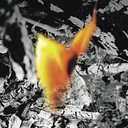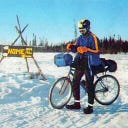What I Learned at Columbia University
Columbia University is in the heart of New York City, and we, being south-westerners, naively drove in. We were unprepared for the mass of cars and humanity that would cross our path, making driving slow like walking. At my new job in New Jersey, my sophisticated Ph. D. Columbia graduate office-mate said we’d find easy parking by Morningside and just walk away from the park. This is what I did, but the many spaces were on the wrong side of the park — there is Morningside Drive and Morningside Avenue. This is how I came to walk straight into Harlem while seeking Columbia. Being female, I asked for direction (guys in my era frowned on asking instruction). The people were gracious and willing to help me navigate this new area. They told me how they got around — no cars involved. First lesson: Learn to mimic native behavior.
I rode the subway at night unmolested while another naive classmate was carjacked in her VW car in a tall dark parking garage. Natives stay out in the open and in crowds. Native NYC street travelers leave expensive stuff at home (or don’t have any), look down, and look like they are in a hurry to get somewhere — even when they are completely lost. Yet they are often friendly once you meet them looking eye to eye in a public place (don’t corner them!). I never used a rest room in NYC. Roger Williams was in a different kind of wild place but also survived mimicking natives. Like me, he likely did it wrong before he got it right.
My husband went blind. So, I studied in order to keep the job that paid for his treatment. I studied in waiting rooms while he underwent surgeries meant to restore sight (they ultimately failed) and on the bus while most slept. In one of my classes, statistics, I had special troubles and the topic brings a bitter taste to this day. Lesson two: I learned discipline.
When he was blind, I learned a new level of discipline as he learned Braille and got a great job as an engineer. Projects that take many years to complete feel hopeless and eternal but are the most worthwhile. Some are necessary projects no one wants but that must be done for a better future. The founding of Providence was such a project.
Finally I got a degree in the study of systems, then called Operations Research. History is composed of interwoven networks of people, as communications networks are composed of networks of computers. The same careful timelines and investigation/extrapolation/interpolation processes and thought training apply when ferreting our insights.
I learned three lessons during my time at Columbia, though only one was taught in formal classes:
1. Mimic the natives in a new world.
2. Discipline to achieve long-term objectives.
3. Techniques for systems analysis.

